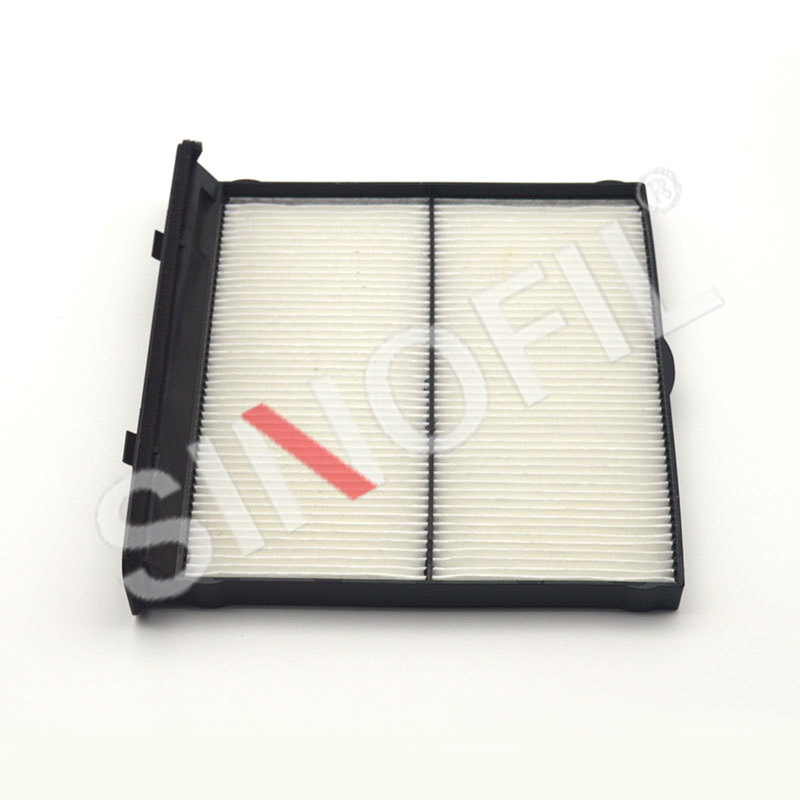Home / News / How do cabin filters protect passengers from harmful pollutants and allergens?
Cabin filters play a crucial role in protecting passengers from harmful pollutants and allergens by filtering the air that enters the vehicle's interior through the HVAC (heating, ventilation, and air conditioning) system. Here’s how they achieve this:
Types of Contaminants Filtered
Particulate Matter (PM)
Dust and Pollen: Cabin filters trap dust particles and pollen, which are common allergens that can cause respiratory issues and allergic reactions.Soot and Smoke: They capture fine particulate matter from vehicle emissions and smoke, reducing exposure to harmful substances.
Chemical Pollutants
Volatile Organic Compounds (VOCs): Activated carbon cabin filters can absorb VOCs, which are emitted from various sources such as fuel, exhaust, and industrial emissions. VOCs can have adverse health effects, including headaches, dizziness, and long-term respiratory issues.Odors: Activated carbon filters can also neutralize unpleasant odors from outside the vehicle, providing a more pleasant in-cabin environment.

Biological Contaminants
Mold and Bacteria: Some advanced cabin filters are treated with antimicrobial agents that inhibit the growth of mold, bacteria, and other microorganisms that can cause infections or allergic reactions.
Mechanisms of Filtration
Mechanical Filtration
Fibrous Layers: Cabin filters consist of multiple layers of fibrous materials that physically trap larger particles like dust, pollen, and debris. The fibers are designed to create a maze that particles must navigate through, getting trapped in the process.
Electrostatic Attraction
Charged Fibers: Some cabin filters use electrostatically charged fibers that attract and capture smaller particles, including fine dust and allergens, which might otherwise pass through mechanical filters.
Adsorption
Activated Carbon: Activated carbon filters work through adsorption, a process where pollutants like VOCs and odors are trapped on the surface of the carbon particles. This helps to remove harmful gases and chemicals from the air.
Improved Respiratory Health
By removing allergens such as pollen and dust, cabin filters help reduce the risk of asthma attacks and allergic reactions.
Filtering out fine particulate matter and chemical pollutants helps protect against respiratory conditions, cardiovascular diseases, and other health issues associated with long-term exposure to air pollution.
Enhanced Comfort
By trapping odors and providing cleaner air, cabin filters contribute to a more pleasant and comfortable driving experience.
Reduction of pollutants and allergens helps to minimize symptoms such as sneezing, coughing, and eye irritation, improving overall passenger comfort.
Clean air contributes to better driver alertness and concentration, which can enhance driving safety.
Reducing exposure to harmful pollutants ensures a healthier environment for all passengers, particularly children, the elderly, and individuals with pre-existing health conditions.
Cabin filters are essential for maintaining a healthy and comfortable environment inside the vehicle. By effectively filtering out particulate matter, chemical pollutants, and biological contaminants, they protect passengers from a wide range of harmful substances, contributing to better respiratory health, enhanced comfort, and overall safety.



 English
English Español
Español











 ++86 183 3391 1399
++86 183 3391 1399


 +86 183 3391 1399
+86 183 3391 1399
 +86 187 3296 0060
+86 187 3296 0060 Wangshigong Village, Wei County, Xingtai City, Hebei Province, China
Wangshigong Village, Wei County, Xingtai City, Hebei Province, China
